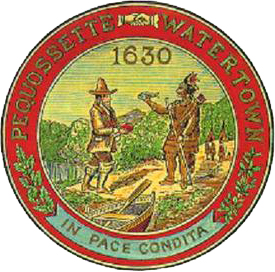
The City of Watertown will request permanent tax relief for residential property owners by sending a Home Rule Petition to the State Legislature for approval.
The City currently has a three year tax relief which allows for the City to shift more of the burden of property taxes on to commercial, industrial and personal properties.
For years, the City had been able to do a shift of 175 percent but due to a detail in the state law for tax shifts, it limited the amount that could be charged to residential properties. This combined with increasing values of commercial, industrial and personal properties means that Watertown has not been able to do the full 175 percent shift.
City Manager George Proakis said that the City is limited by the state law that requires that the proportions of tax levy not exceed 38.76 percent for commercial, industrial and personal properties, which is the percentage when Watertown set the split tax rate. The Home Rule Petition would change that.
“The item before you takes takes that circumstance and requests a new Home Rule, a new act of the State Legislature to allow us to continue to perpetuity split so that we can collect 50 percent of our taxes from residential and 50 percent from the commercial and industrial side, which in the end of the day, will put us pretty close to that 175 percent,” Proakis said. “It will continue to encourage us to do growth in both the residential and commercial side, to keep things balanced, but it will do it in such a way that allows us to essentially tax similar to the way that pretty much every other community in the Commonwealth does.”
Without the adjustment, Watertown would only be able to shift taxes by about 150 percent, Proakis said.
The original tax relief request was sent to the State Legislature in August 2022, and took more than a year to be approved. City Council President Mark Sideris noted that the request is for Fiscal Year 2027, which would be two budget years from now.
“We are trying to get way ahead of it, because we know how long the Legislature could take to act on something like this. And they may come back and say, we’re only giving you three years again,” Sideris said. “And my understanding is we could be in a situation like they were in the City of Boston where the residential tax rate goes significantly higher than we might want it to without asking for this legislation.”
The Charles River Regional Chamber — which represent Watertown, Newton, Needham and Wellesley — sent a letter to the City Council with concerns about the shift of taxes more to the commercial, industrial and personal property side, saying it could hurt “the business community’s ability to remain strong, competitive, and able to thrive.”
“While we understand that the 175 percent commercial property tax shift helps ease the burden on residents and homeowners, it comes with a cost. A cost that is borne by our small and large businesses alike. These are the businesses that contribute to Watertown’s commercial centers, provide jobs, and strengthen our tax base,” the letter reads. “And today, many of them are struggling to cope with this challenging economic climate. Tariffs, inflation, high interest rates, immigration disruptions, and cuts to federal research funding are impacting nearly every sector from our labs, tech firms, and health providers to locally owned restaurants, retailers, and service businesses.”
The City Council unanimously approved the resolution that would have the City petition the Legislature to provide the new minimum residential factor for Fiscal Year 2027 and subsequent fiscal years.